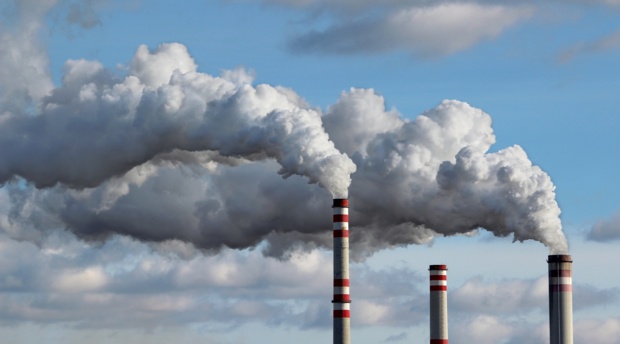AUWCL’s Sustainable Development Law and Policy Brief Hosts Symposium on Air Quality and Environmental Justice
Feb. 7, 2020

On Friday, Feb. 7, environmental scholars gathered for a symposium on Air Quality and Environmental Justice at American University Washington College of Law. Hosted by the Sustainable Development Law and Policy Brief, attendees were encouraged to think through an age-old question: what should we do about climate change?
Regarding traditional approaches to climate change like carbon tax, Keya Chatterjee, executive director of the U.S. Climate Action Network noted, “We’re kidding ourselves in having conversations that I remember having 30 years ago.”
Keynote speaker Charles Lee’s presentation illustrated that environmental justice is the meeting point of two social movements—civil rights and environmentalism. Lee’s work as principal author of Toxic Wastes and Race (1987) marked a pivot in environment scholarship. Race was found to be the most statistically significant factor in determining where hazardous waste sites were located. In light of the water crisis in Flint, Michigan, the picture of environmental justice becomes clearer and clearer.
“Not everybody is breathing the same air,” said Vernice Miller-Travis, executive vice president for Environment and Sustainability at Metropolitan Group, who researched the data backbone for Lee’s study. “And some people are paying with their lives.”
Adrienne Hollis, senior climate justice and health scientist at the Union of Concerned Scientists, showed that environmental issues are tied to public health, where certain communities had higher rates of respiratory diseases.
Lisa Anne Hamilton, the adaption program director at Georgetown Climate Center, discussed the role of environmental gentrification of diverse and low-income communities. As wealthier folks realize the vulnerability of their properties, they shift inland. However, this can lead to displacement of people who are already there, who cannot always afford to “just move,” said Hamilton.
“Climate solutions can’t make things worse for people who are already breathing in unclean air and drinking unclean water,” said John Walke, director of the Clean Air, Climate and Clean Energy program at the Natural Resources Defense Council (NRDC).
Panelists encouraged the audience to dive into political participation and immediate demand movement through the power of voting and coalition building.
“People are suffering and we’re out of time,” said Chatterjee. “It’s not our role as leaders to ‘wait and see.’”
Learn more about AUWCL's Program on Environmental and Energy Law here.